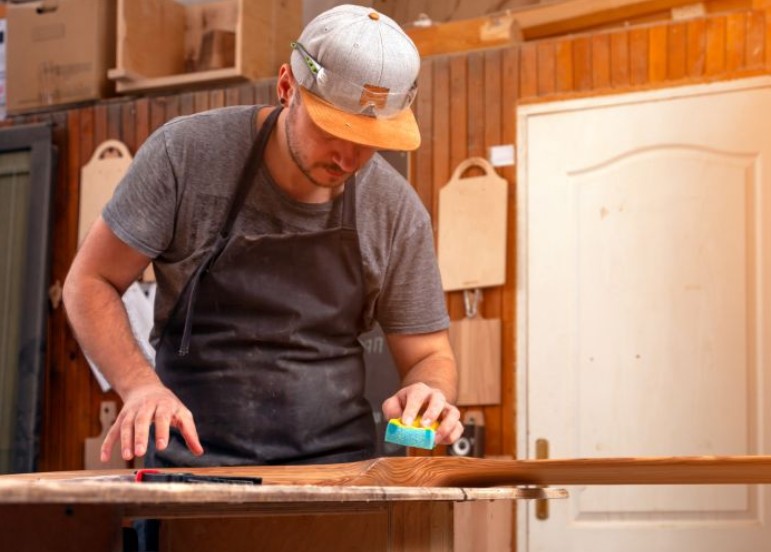
The Best Flooring Options for Basement Finishing Projects
Basement finishing is one of the most effective ways to increase living space and property value. Whether you’re creating a game room, home office, guest suite, or entertainment area, the right flooring sets the tone for the entire project. But unlike main-level rooms, basements have unique conditions that require extra consideration, especially regarding moisture, durability, and temperature.
If you’re planning basement finishing in Kansas City, choosing the right flooring is critical to making your space beautiful, comfortable, and long-lasting. This guide’ll break down the best flooring options and explain why certain materials perform better in below-grade environments.
What Makes Basement Flooring Different?
Basements are more prone to moisture and humidity than other areas of the home. Even when waterproofed, the risk of condensation, leaks, or seepage is higher due to the surrounding soil and temperature differences between the interior and exterior.
A successful basement finishing project should use flooring that can withstand:
- Moisture and humidity
- Cold temperatures
- Uneven subfloors
- Occasional water leaks or spills
The best options are water-resistant or waterproof, easy to clean, and capable of handling the environmental conditions of a Kansas City basement.
1. Luxury Vinyl Plank (LVP)
For good reason, luxury vinyl plank is one of the most popular basement flooring choices. LVP mimics hardwood’s look but is far more resistant to moisture and temperature swings.
Pros:
- 100% waterproof (ideal for below-grade spaces)
- Durable and scratch-resistant
- Comfortable underfoot with added padding options
- Wide variety of styles and wood-look finishes
Cons:
- Requires a level subfloor for best results
- Not as eco-friendly as natural materials
For basement finishing in Kansas City, LVP is a strong, attractive option that easily handles humidity and seasonal weather changes.
2. Ceramic or Porcelain Tile
If water resistance is your top concern, tile is nearly unbeatable. It’s nonporous, easy to clean, and perfect for moisture-prone areas. Tile is especially good in basements that may double as laundry rooms, mudrooms, or walkout entries.
Pros:
- Highly water-resistant and long-lasting
- Comes in a range of colors, textures, and sizes
- Works well with radiant heating systems
Cons:
- Cold and hard underfoot without rugs or heating
- More expensive installation
- Can crack if the subfloor shifts
Tile is a safe and stylish pick for high-traffic areas or moisture-prone zones.
3. Engineered Hardwood
Traditional hardwood isn’t recommended for basements because it tends to warp and swell. However, engineered hardwood is a better alternative. It has a real wood veneer on top but a layered core that resists moisture better than solid wood.
Pros:
- More stable than traditional hardwood
- Looks upscale and adds home value
- Warmer and softer underfoot than tile
Cons:
- Not waterproof—requires a dry, sealed basement
- Can be more expensive than vinyl or laminate
Engineered hardwood can be a great choice for homeowners who want a warm, natural look in their finished basement, especially if moisture is under control.
4. Carpet Tiles
Carpet is warm, comfortable, and inviting—especially in a basement. While wall-to-wall carpet can be risky in damp environments, carpet tiles offer a flexible and safer solution. You can replace just that section if one area becomes damaged without redoing the entire floor.
Pros:
- Adds insulation and soundproofing
- Softer and warmer underfoot
- Easier to install and replace than traditional carpet
Cons:
- Can trap moisture or develop mildew if the basement leaks
- Not ideal for high-moisture areas
Carpet tiles work best in dry, sealed basements and are great for home theaters, playrooms, or lounges.
5. Stained or Polished Concrete
Concrete might be all you need if you’re looking for a modern, industrial look, or you just want a no-fuss flooring solution. With staining or polishing, concrete floors become sleek, smooth, and easy to maintain.
Pros:
- Extremely durable
- Low maintenance
- Resistant to water and damage
Cons:
- Can feel cold or hard
- Requires sealing
- Limited style and comfort
This is a smart option for basements that double as workshops or gyms, or for those going for a minimalist design.
6. Rubber Flooring
Rubber flooring is soft, slip-resistant, and easy to clean, making it ideal for fitness rooms, children’s areas, or utility spaces. It absorbs impact and reduces noise, which can be helpful in multi-use basements.
Pros:
- Shock-absorbing and quiet
- Mold and mildew resistant
- Easy to install
Cons:
- An industrial look may not suit all styles
- It can be more expensive than vinyl.
Rubber tiles or rolls are ideal for families who want a versatile and safe floor that won’t worry about water damage.
What to Avoid
Certain materials don’t hold up well in basements, even when properly sealed. These include:
- Solid hardwood
- Laminate without a moisture barrier
- Standard wall-to-wall carpet
- Cork or bamboo
These materials can absorb moisture, swell, or grow mold in the humid conditions typical of Kansas City basements.
Conclusion
Choosing the right flooring is among the most important decisions in any basement finishing project. From waterproof vinyl to stylish tile and cozy carpet tiles, there’s an option for every style and use—if you choose materials built to handle below-grade conditions.
If you’re planning basement finishing in Kansas City, the Kansas City Basement Remodeling team can help you choose and install great flooring that stands up to your lifestyle. Reach out today to start designing a beautiful, durable, and comfortable basement from the ground up.
